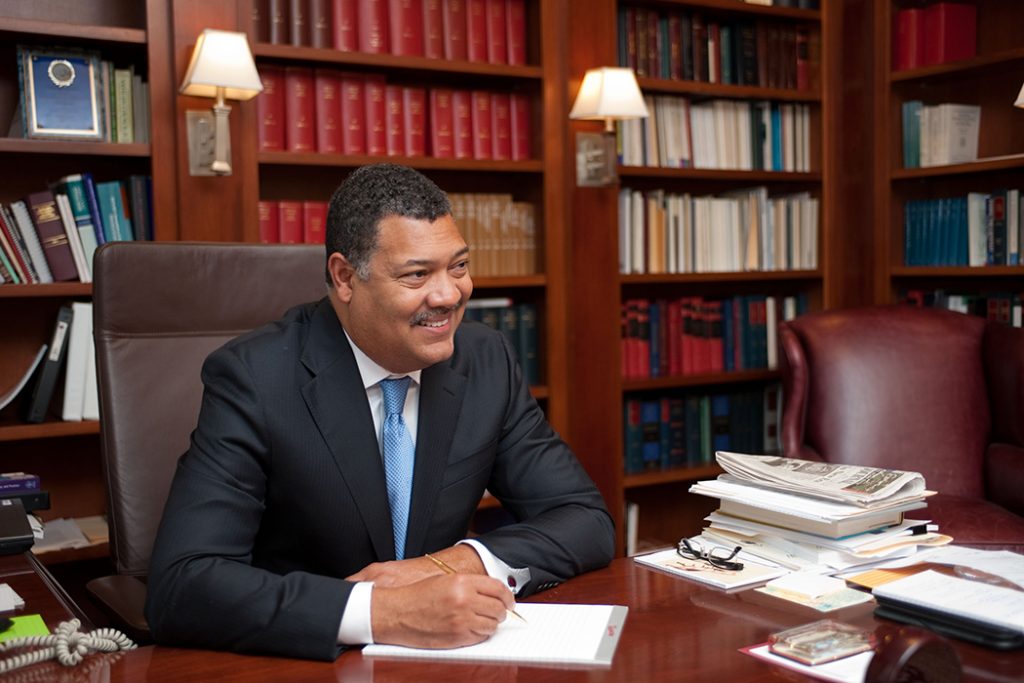At our student orientation last August, I told the incoming 1L class about a recent book I had read by Henriette Ngenga, the mother of a young woman who used to babysit for my children. The book described how her immediate family survived and escaped the 1994 genocide in Rwanda. As you can imagine, it was not an easy read, particularly when you know the people involved, but ultimately, it was inspiring and life affirming.
Two recurring themes dominated Henriette’s story. The first was how the rhetoric of hate can turn ordinary people into monsters, and how the constant dehumanization of people who are different or weak can ultimately lead to catastrophic violence. The second was that law holds immense power, both in enabling hate and delivering redemption.
Henriette is not a lawyer, but in telling her story she was acutely aware of the ways in which the law was used in Rwanda, first to nurture the hate that fed the genocide by creating systematic legal discrimination against the Tutsi tribe, and then later to repair the devastation through a truth and reconciliation process and the prosecution of a significant number of the perpetrators of the genocide. Finally, it was the law and lawyers that allowed Henriette and her family to gain political asylum and move permanently to the US, where after many years they were able to rebuild their devastated lives.
Recently, we have been turning more of our attention to the laws of the United States. Our growing partisanship and a contentious election have exposed deep rifts within our country, challenging the nation’s unity at its very core. These rifts have been carried over into the first few months of the new administration, as the president’s attempts to implement his vision in the form of executive orders on immigration, environmental protection, regulatory reform, and crime have sparked waves of protests and heated rhetoric on both sides of the aisle.
They have also generated dozens of lawsuits, as lawyers across the country rushed to fight, for example, the travel ban in court and to argue for and against letting the oil flow through the Dakota Access pipeline. It may be tempting to ascribe either more or less importance to their efforts, depending on which side of the issue your own politics fall; however, what we must not fail to recognize is the importance of the legal mechanisms that have been triggered as a response. They are vital to the survival of our democracy.
We are a nation built on laws. Those laws are meant to protect us, often from ourselves. Political winds blow in different directions, leaders rise and fall, and human emotions can push even the most levelheaded among us into impulsive acts or decisions that we come to regret. At its best, the law provides a check on groupthink and thoughtless impulse, but this alone is not enough to ensure that we treat one another with fairness and respect. The law itself is not inherently good or bad, and on its own, it cannot ensure that we use it responsibly. As Henriette’s story illustrates, it can uplift and protect, or it can dehumanize and destroy.
I chose to tell Henriette’s story to our entering class because as lawyers and as leaders, we have a duty to use this vital tool to advance society on behalf of all its members. No matter what the economic, social, or political circumstances in which we find ourselves, there will always be a need for well-trained lawyers. In times of crisis or uncertainty, our nation has long looked to the legal profession to move the country forward. It is up to lawyers to navigate through our complex legal system so that our democratic tradition of a government of laws can be enhanced and protected, and so that all of us, especially the weak and the poor, can seek redress against the abuse of power.
At BC Law, we are well positioned to educate lawyers who protect our most vulnerable and help shape our nation’s laws for the good of all, rather than a few. A commitment to the ethical and just application of the law runs deep at Boston College, through our Jesuit roots. Those of us who are training the next generations of legal leaders must ensure that all honor the oath they take as members of the bar, and that we strive to uphold the law with fairness and compassion.


